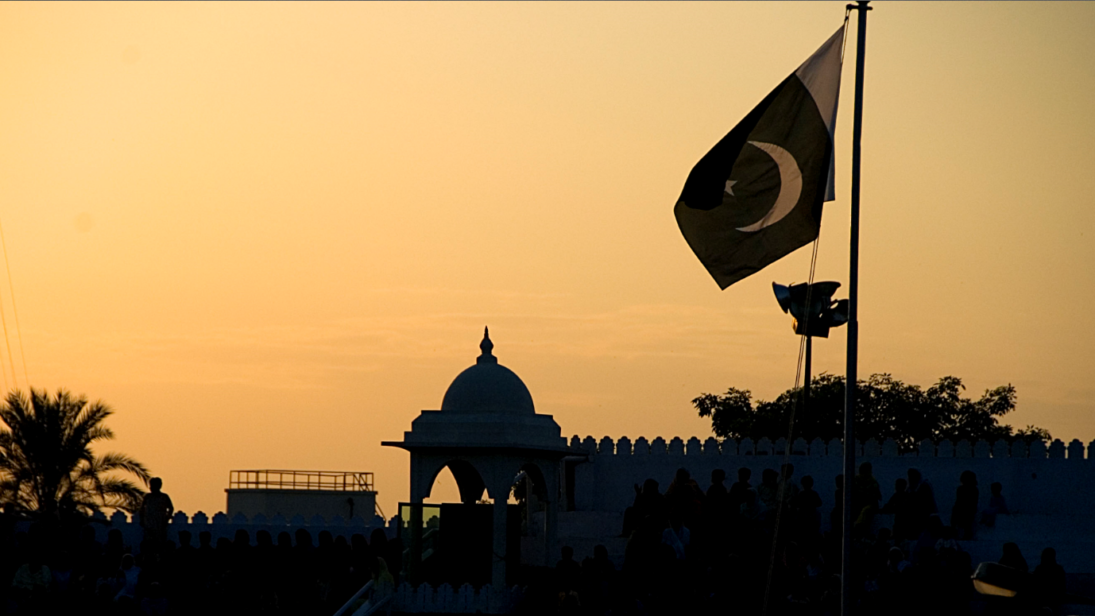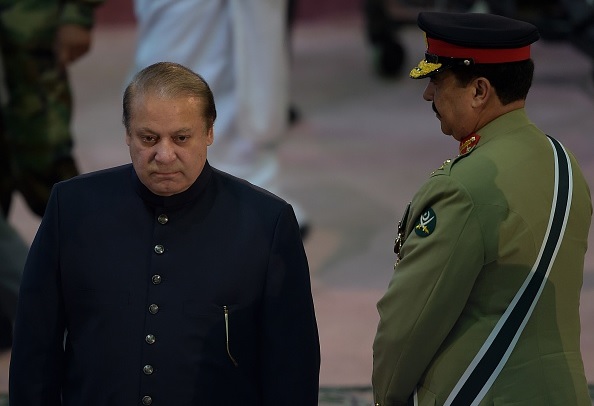
On July 28, the Supreme Court of Pakistan disqualified Prime Minister Nawaz Sharif after a prolonged investigation into his and his family’s disproportionate financial assets, revealed by the 2016 Panama Papers leak. The court, in its scathing verdict, not only forced Sharif to step down from the premiership but also ordered the National Accountability Bureau to register corruption cases against him and his immediate family. Although the Sharif family’s defense remained weak throughout the trial, the court’s final verdict has been criticized for failing to present a broad judgment. Speculation concerning the military’s role in influencing the court’s verdict is the talk of the town. With the next general elections only months away, the political atmosphere in the country is highly charged, with the ousted prime minister carrying out massive public rallies and terming his disqualification an “insult to voters.”
With most of the old guard of Pakistan’s civilian leadership nearing retirement, the upcoming national elections present a unique opportunity for the country’s democratic setup. These elections are likely to determine whether Pakistan sets itself on a true democratic course or follows its traditional trajectory allowing non-civilian forces to manipulate political processes and democratic institutions. Unless emerging political elites learn from the mistakes of the old guard such as inability to challenge the military’s influence or provide effective governance, Pakistan is not likely to make any headway toward the establishment of true democracy.
Failure of the Old Guard
Arguably, the political leaders that emerged during the 1970s and 1980s are looking to contest their last major elections, scheduled to take place next year. Almost all mainstream political parties in the country, including the Pakistan Muslim League-Nawaz and the Pakistan People’s Party are getting ready to hand over the leadership mantle to the next generation. A number of smaller regional political parties, such as the Awami National Party in Khyber Pakhtunkhwa, the Muttahida Quami Movement in Sindh and the Pakistan Muslim League-Quaid-e-Azam in Punjab are also going through this transition in one way or another.
The old generation of political leadership in Pakistan has lived through a number of de-facto limitations imposed by the military establishment over matters of defense, national security, foreign affairs and issues related to key sectors of the economy. On part of the military establishment, this has been achieved by dividing civilian political forces from within, using other institutional mechanisms such as the judiciary, or intervening overtly by imposing martial law. Pakistan’s old guard has never been able to challenge the military’s embedded influence in the country. Among other factors, persistent corruption, bad governance, greed for power, and the culture of political opportunism among the country’s political elites continue to offer the establishment leeway to weaken the elected government at will.

However, for some time now, the old guard has begun to realize that fault lines among the country’s political elite are exploited to make space for ‘unconstitutional’ influence, hence undermining an already precarious transition to democracy. After being ousted from power, Sharif has been relentlessly trying to build a narrative that indirectly targets the military’s sweeping powers. Sharif, in his rallies, has clearly expressed his frustration over the deepening imbalance between political forces and the military establishment. On the question of the military’s political influence in the country, leaders of a number of other mainstream and regional political parties have the same reservations, but unfortunately, the old guard in Pakistan has woken up too late to this realization.
Opportunities for the Emerging Political Elite
With the departure of the old guard in the next few years – the next national polls will see a major transition – a new generation of political leaders is set to emerge in the country. While a majority of the new leadership will have a dynastic background, mainly inheriting political parties and patronage links, the country’s fast growing middle class, rapid urbanization and exploding youth population are likely to create a challenge for the traditional tribal-style politics, which remains prone to conservatism, nepotism, sectarianism, and provincialism.
While Pakistan has had periods of civilian rule, the country has never had true democracy. Tribalism and weak democratic structures at the grass root level continue to remain key problems. On the other hand, Pakistan’s political elites have hardly attempted to challenge the country’s tribal structures, for these structures form the basis of electoral gains for the elites and are their route to power.
Way Forward
However, this could change. More than 65 percent of the country’s population is under 30 years of age. More than 90 percent of Pakistan’s youth believes that the country is “headed in the wrong direction.” The country’s young population is not interested in tribal or ethnic loyalties. More than anything, the youth is concerned about increasing unemployment rates and the economic instability in the country.
This presents both a challenge and an opportunity for the incoming political leadership. Unless the country’s political leadership moves from serving its own interests to truly serving the people, they are neither going to establish democracy in Pakistan nor will they challenge the military elite’s influence in the country. If there is one way in which the newly emerging political elite can challenge the military’s iron grip over the country, it is through good and effective governance. Instead of fighting themselves, which ultimately gives space to other institutions, the country’s current and emerging political elites should keep democracy working, in order to keep the non-civilian institutions at bay.
The perceived widespread corruption among the political elite and poor governance needs to be tackled, for it not only compromises their legitimacy but also undermines people’s trust in democratic institutions. Moreover, to put the country on a true democratic course, the political leadership not only needs to bring effective legislation to curtail corruption and improve administrative-bureaucratic elite accountability but also to bring major reforms in a number of laws that have enabled violence, militarism, and religious conservatism in the country.
Unless the country’s current or emerging political elites deliver on effective governance, citizen participation, and establishment of true democracy, Pakistan will continue to be ruled by non-civilian forces regardless of which generation of political leadership is at the helm of affairs.
***
Editor’s Note: Click here to read this article in Urdu
Image 1: bm1632 via Flickr (cropped)
Image 2: Aamir Qureshi-AFP via Getty Images


